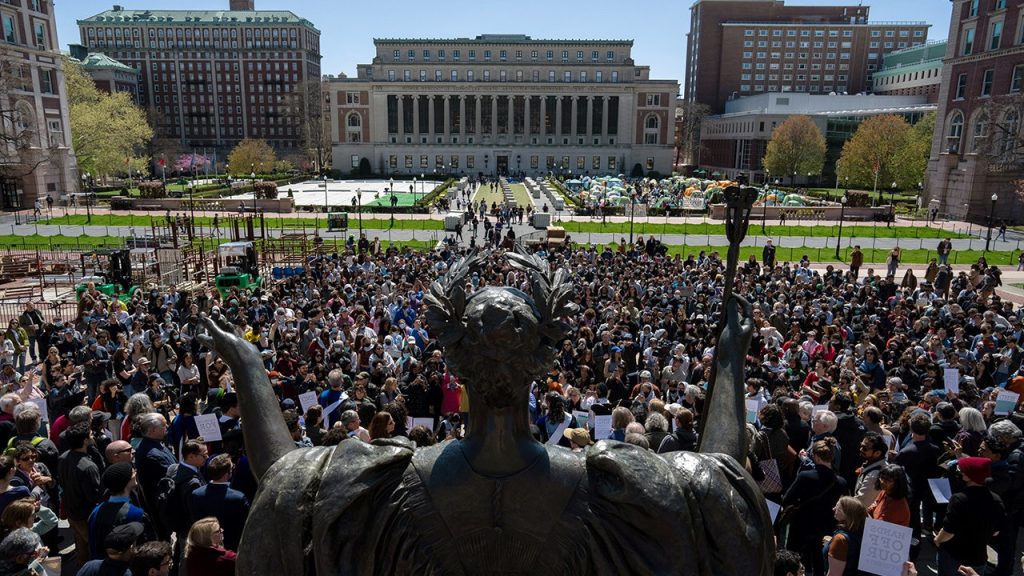As tensions escalate at Columbia University between pro-Israel and anti-Israel protesters, Jewish and Israeli students report feeling afraid to walk through the campus area where the protesters have set up tents, especially after sundown. There have been reports of violence, harassment, and antisemitic rhetoric directed towards Jewish students by the protesters. The situation has become so tense that some students have reportedly been followed home, told to kill themselves, spit on, and shouted at. The protesters have also refused to engage in conversation with Jewish students or supporters of Israel, creating an echo chamber that may fuel radicalization.
The current wave of protests began after Hamas launched a surprise attack that killed over 1,200 Israelis and resulted in more than 200 being held hostage. Protests have erupted at various U.S. universities, including Columbia, USC, UT Austin, and Yale. A group of protesters at Columbia initially set up tents on school grounds but were later kicked out, only to return with more tents and occupy the West Lawn instead. The presence of the protesters has led to fear and discomfort among Jewish and Israeli students, with many avoiding the area after dark due to safety concerns.
Columbia University officials have been in negotiations with the protesters but have so far declined to ask police to clear them out a second time. School President Minouche Shafik expressed hope that discussions with the protesters would be successful but mentioned that alternative options may be considered if necessary to restore calm on campus. There are plans to take action against protesters who have violated the school’s policies against discrimination and harassment. House Speaker Mike Johnson visited the campus to call on Shafik to resign if the protests are not reined in. Some Jewish students and critics of the university’s response have accused the administration of antisemitic discrimination.
The presence and aggression of the anti-Israel protesters at Columbia University have created a tense and hostile environment for Jewish and Israeli students on campus. Reports of violence, harassment, and antisemitic rhetoric have left many feeling scared to walk through the area where the protests are taking place, especially after sundown. The refusal of the protesters to engage in dialogue with Jewish students or supporters of Israel has further exacerbated tensions and may lead to radicalization within the group.
The protests at Columbia University were sparked by a Hamas attack that resulted in casualties and hostage situations in Israel. Similar protests have occurred at other U.S. universities, with anti-Israel agitators being arrested. While school leaders have been in negotiations with the protesters, the refusal of some to engage in productive conversations has made it difficult to find a resolution. There are concerns about the safety and well-being of Jewish and Israeli students on campus, as well as the impact of the protests on campus life and academic activities. The administration is facing calls to take stronger action to address the situation and ensure a safe and inclusive environment for all students.
The situation at Columbia University highlights the complex and sensitive nature of campus activism and the challenges of balancing free speech rights with the need to maintain a safe and inclusive environment for all students. The protests have raised concerns about discrimination, harassment, and violence directed towards Jewish and Israeli students, as well as the impact of such actions on campus culture and community. There are calls for the administration to take swift and decisive action to address the situation and uphold the school’s values of mutual respect and kindness. The ongoing negotiations with the protesters and the potential for further escalation underscore the importance of finding constructive and peaceful ways to address conflicts and differences within the university community.













